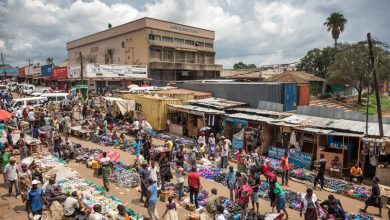Fuel prices jump 33.2%
Malawi Energy Regulatory Authority (Mera) has increased petrol and diesel pump prices by an average of 33.16 percent from today in a move meant to ensure “sustained fuel supply and attain cost reflective pricing”.
The price review, coming three days before President-elect Peter Mutharika is sworn-in following his triumph in the September 16 General Election, is the first since November 2023 when Mera last revised the pump prices.

It also comes against a background of an abandoned automatic pricing mechanism (APM) which led to depletion of price stabilisation fund (PSF) in the fuel pump price build up.
Mera board chairperson Charles Kambauwa, in a statement made available to The Nation at midnight, said following the adjustment, petrol will now be selling at K3 499 from K2 530 per litre while diesel is now fetching K3 500 per litre from K2 734.
He said the regulator adjusted the prices after considering trends in prices of petroleum products on the international market as well as exchange rate movements.
Said Kambauwa: “Free-on-board [FOB] prices of petrol and diesel decreased by -10.64 percent and 18.14 percent, respectively. The Malawi kwacha remained stable, trading at K1 751 against the United States dollar.
“However, importers were being quoted an average market exchange rate of K2 350. The FOB prices, road freight rates, railage, insurance and handling and in-transit losses at the market exchange rate of the K2 350 against USD result in increased in-bond landed costs by 52.42 percent and 49.67percent for petrol and diesel, respectively.”
Under the APM, prices are revised when changes in the petroleum products’ landed costs or the exchange rate are beyond the plus or minus five percent trigger limit.
Following the abandonment of the APM, the International Monetary Fund (IMF) in August stated that Malawi’s petrol and diesel pump prices were about 32 percent and 19 percent below cost recovery, respectively.
As a consequence, IMF said Mera owed Petroleum Importers Limited (PIL)—a consortium of private oil marketing companies— and the State-owned National Oil Company of Malawi (Nocma) Limited at least K950 billion in import losses.
In addition, K450 billion worth of fuel-related levies remained unpaid to the government, crippling programmes such as road maintenance and construction as well as rural electrification.
Malawi’s fuel prices were well below regional prices, encouraging extensive smuggling and further burdening Malawi’s balance of payment position.
Under the Liquid Fuels and Gas (Production and Supply) Act, maximum pump prices for petrol and diesel are regulated and uniform nationwide as fuel pricing is based on the APM introduced in May 2012 as part of IMF’s Extended Credit Facility (ECF)-supported programme reforms to ensure that pump prices reflect international oil price and exchange rate movements.
In an earlier interview, the Consumers Association of Malawi (Cama) had asked the energy regulator to adjust fuel pump prices to reflect the realities of landed costs.





